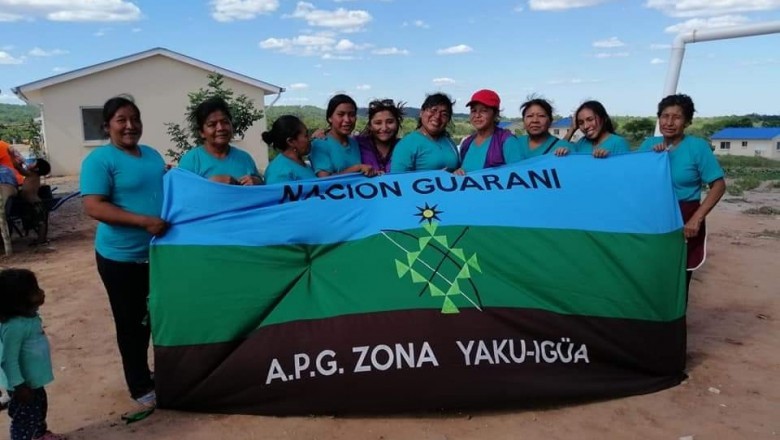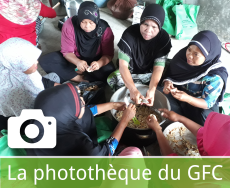La lutte des femmes Guarani pour la justice environnementale et de genre est présentée dans Ms. Magazine

Publié dans Ms. Magazine le 1/11/2023 par Juana Vera Delgado
Ceci est un extrait. Cliquez ici pour lire l’article complet.
Après plus de quatre ans de négociations, le 19 décembre 2022, près de 200 nations ont adopté le Cadre mondial pour la biodiversité de Kunming-Montréal, un accord contraignant visant à protéger au moins 30 % de la biodiversité mondiale d’ici 2030. L’accord représente un grand pas en avant vers une conservation de la biodiversité fondée sur les droits, juste pour les femmes et socialement équitable.
… continuer en anglais
The agreed text not only recognizes Indigenous territories as an important, autonomous contribution to area-based conservation, but it also includes other targets—like calling on governments to recognize the rights of Indigenous peoples, local communities and women in biodiversity conservation.
The framework admittedly isn’t perfect. It does not wholly incorporate Indigenous peoples’ demand for their lands and territories to be fully recognized as a category of conserved area. But it’s still decisive for the recognition and respect of collective, environmental, cultural and gender rights of Indigenous peoples—women, in particular.
Every day and for hundreds of years, Indigenous men and women, environmental and human rights defenders are confronted with threats—from intimidation, physical attacks, rapes and murders, to prohibitions on free expression and association and forced displacement from their territories.
Yet, there is hope that the Kunming-Montreal Global Biodiversity Framework will help to reign in these violations and return stolen lands to communities and ensure the rights of Indigenous peoples across the world.
One such community that continues to struggle against generations of injustice is the Guaraní of Laguna Chica, Bolivia, located in the Yaku Agüa territory by Bolivia’s southern border with Argentina. There, recent legal victories have given the Guaraní people hope that more than 500 years of colonization, enslavement and environmental destruction of their lands can be overturned, as recounted in their recently published book: Laguna Chica: The First Ancestral Territory Longed and Consolidated by the Organized Force of the Guaraní Women of Yaku Igüa-Tarija, written by one of their women leaders.
“Now we live freely, without bosses,” said Mrubicha Modesta Medina, a Guaraní traditional leader.
In July 2019, after years of struggle, Guaraní women of regained access to areas of their ancestral land robbed from them and converted into industrial farmlands and cattle ranches.
Medina’s words weigh heavy with meaning in light of her community’s historical struggle against colonization and patriarchy, which has kept the Guaraní Indigenous People enslaved and dispossessed of their lands since the Spanish invasion in the late 16th century. Women’s gender and cultural and environmental justice movements have been at the forefront of the community’s struggle, epitomizing the collective capacity of Indigenous Peoples in their unwavering fight for redistributive justice. Their story, as told in the book, teaches us that it is possible not only to dream but also to bring about real, transformative change.
… keep reading at Ms. Magazine










